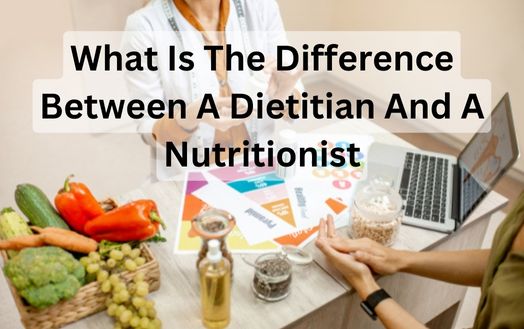All Categories
Featured
Table of Contents
-1
In the USA and lots of various other nations, a dietitian is a board-certified food and nourishment specialist. They are extremely enlightened in the area of nutrition and dietetics the scientific research of food, nutrition, and their effect on human health. Via considerable training, dietitians acquire the experience to give evidence-based clinical nourishment therapy and dietary counseling tailored to meet an individual's requirements.
-1To gain these qualifications dietitians-to-be must initially earn a bachelor's degree or equivalent credits from a recognized program at a college or university. Usually, this calls for an undergraduate science degree, including courses in biology, microbiology, organic and not natural chemistry, biochemistry and biology, composition, and physiology, as well as even more customized nutrition coursework.
Sports Nutrition Specialist – Augusta Margaret River 6285
-1This allows them to analyze acute needs, prioritizing life-threatening conditions. Inpatient and outpatient dietitians also give nutrition education and learning to people with specialized demands, such as those newly out of surgery, in cancer therapy, or detected with persistent ailments like diabetic issues or kidney disease. In the outpatient setup, they provide much more extensive nutritional therapy functioning towards a nutrition-oriented objective.
-1They can likewise advocate for public laws with a concentrate on nutrition, food, and health and wellness issues. Research dietitians usually operate in research medical facilities, companies, or colleges. They operate within a research study team headed by a key detective and perform nutrition-focused treatments. Once dietitians have actually made their credentials and are operating in the area, they can go on to focus on a particular subcategory, such as pediatric medicines or sports dietetics.
-1Others may work as health and wellness and nutrition professionals in media or as public audio speakers (Accredited Practising Dietitian). Dietitians are certified to handle nourishment therapy across a span of severe and persistent problems.
Personal Trainer Nutritionist (Margaret River )
-1In numerous states, such as Alaska, Florida, Illinois, Maryland, Massachusetts, and Pennsylvania, RDs and CNSs are provided the very same state permit, generally called a Qualified Dietitian Nutritionist (LDN) permit. In states that do not manage the use of this term, any individual with a passion in diet plan or nutrition might call themselves a nutritional expert.
-1However, since uncredentialed nutritional experts generally lack the competence and training for medical nourishment treatment and nutrition therapy, following their suggestions might be considered hazardous (). Before consulting a nutritional expert, you may intend to check whether your state regulates that may utilize this title. In the U.S. states that do not control the term, no degrees or qualifications are required to be a nutritional expert.

-1
In states that do mandate licensure, the CNS or RD credential may required. Those with CNS qualifications are wellness specialists like nurses or doctors with innovative health and wellness degrees who have looked for additional coursework, finished monitored technique hours, and passed an exam looked after by the Board for Accreditation of Nutrition Specialists.
-1While some of these strategies may have robust clinical support, others might not. Giving nutrition recommendations without the proper knowledge and training can be hazardous, specifically when counseling those with health and wellness conditions. Thus, if you are considering speaking with a nutritional expert, you may wish to ask if they are a CNS or have state licensure or qualification, or one more credential.
Registered Dietitian – Margaret River 6285
-1Several states particularly regulate this term. Furthermore, nutritional experts might pursue an innovative CNS accreditation.
-1It can be testing to aid people make genuine, long-term changes in their lives. Nonetheless, when you obtain an effective case, the payback can be immensely fulfilling. If it's a career choice that you wish to seek, there are 2 major job choices readily available to you. Both dietitians and nutritional experts offer a series of nutrition-based solutions to customers.
-1They have to have finished some degree of education and learning in their area. They are also needed to have actually finished as much as a year of supervised job, working within a led program at a medical care center, providing business, or area body. Dietitians have far greater assumptions positioned on their abilities and level of professionalism and trust.
-1This suggests that there is no body that oversees their certifications and no especially rigorous standards that nutritionists requirement to comply with in order to be able to exercise. Dietitians, on the various other hand, are signed up with across the country acknowledged bodies, such as the Dietitians Association of Australia. They must follow the National Competency Requirements for Dietitians.
Nutritionist Specialist – Margaret River

-1
You can practice as a nutritional expert without the very same degree of accreditation as a dietitian. Nutritionist programs can differ in size and high quality, with some as short as six weeks and covering far less content than a dietetics course. Depending upon your education carrier, you can acquire a considerable amount of expertise through studying a straightforward nutrition training course; nonetheless it is necessary to investigate the course material before beginning.
-1This can include going to industry workshops or reviewing industry magazines. Nutritional experts, on the other hand, generally gain their credentials in order to supplement various other certifications and offer better advice to their clients. Nutritional experts can acquire employment in a wide variety of areas, consisting of public health and wellness advice, suggestions for people, and working with private organisations.
-1Nutritionists can work with sporting organisations, fitness centers, institutions and recommend media electrical outlets on basic terms and proper use of terms. Dietitians can work in most of the exact same roles as nutritionists.
Accredited Sports Nutritionist – Margaret River
-1Dietitians frequently deal with even more clinically sensitive clients. These can include those with diabetic issues, allergic reactions, weight problems, cancer and stomach conditions. As a result of the high degree of expertise called for to give solutions to these individuals, only approved dietitians are permitted to supply treatment. Several of the greater degree duties with healthcare establishments can be really gratifying, and pay rather well.
-1In Australia there is a difference in between a dietitian and other dietary health providers consisting of nutritional experts. All dietitians are nutritionists, however nutritional experts without a dietetics certification can not call themselves a dietitian. While there are similarities between a dietitian and nutritional expert there are differences in qualifications and law. The dietetic profession is controlled and satisfies rigorous standards as laid out by the National Alliance of Self Regulating Health Professions (NASRHP).
-1Dietitians with the Accredited Practising Dietitian (APD) credential devote to ongoing training and education throughout their occupations. As an occupation, nutritional experts are not controlled in Australia under NASRHP or accredited under a single regulative body.
Balanced Diet Plans
-1If you have a persistent wellness condition and a care strategy from your GP, you may be able to assert a Medicare discount when you see an APD. The primary objective of people working in the career of dietetics is symbolized in this declaration: The career of dietetics adds to the promotion of health and wellness and the avoidance and treatment of illness by optimising the nourishment of populaces, areas and individuals. Renal Dietitian.
Latest Posts
Affordable Gym Near Me – [:suburb]
Proven Group Classes (Shelley)
Experienced Gym Workouts Near Me